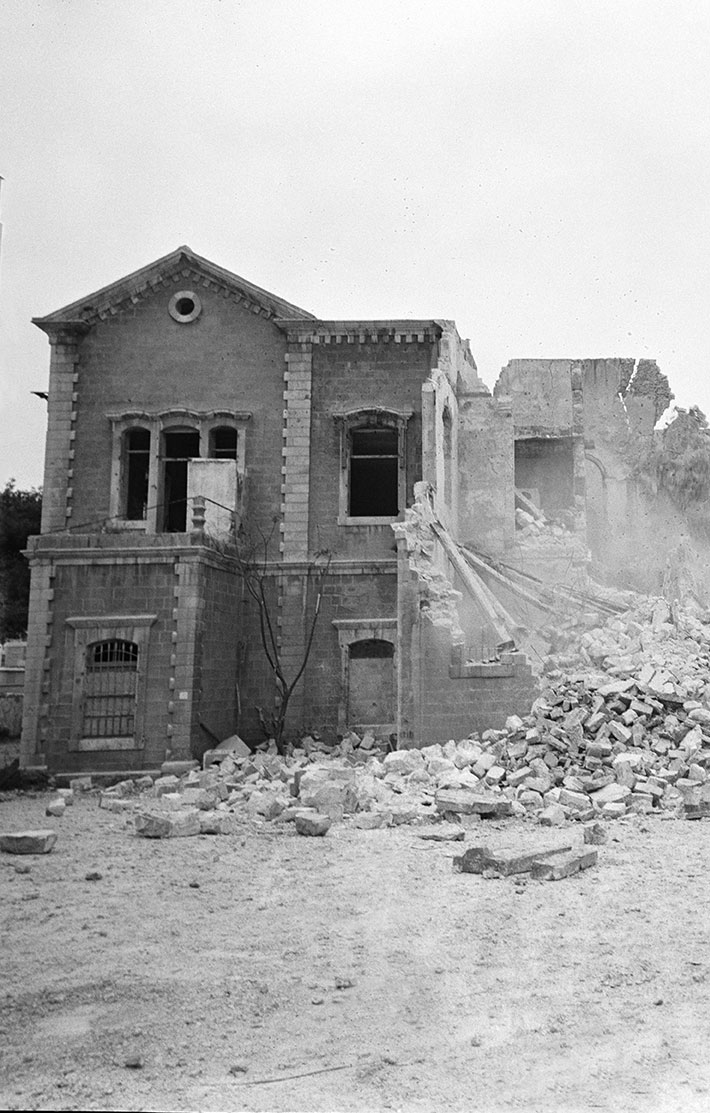- The school
- Studies and Research
- BACHELOR
- MASTER
- DOCTORATE
- RESEARCH
- TRANSDISCIPLINARITY
- POOLS
- CONTINUING EDUCATION
- Continuing education 2025-2026
- Artificial Intelligence, initiation
- Artificial Intelligence, Advanced
- Artificial intelligence open-source, ComfyUI
- Creative coding
- Engage with drawing
- Frame-by-frame animation
- Immersive Mapping : Unreal Engine & MadMapper
- 3D exhibition modeling in SketchUp
- 3D modeling, Blender
- Point cloud scanning
- Documentary podcast
- Serious games
- For students
- Studying at the HEAD
- InfoLab
- Living in Geneva
- Tuition fees and sholarship
- Library
- Regulations and instructions
- Projects
- Events
- Press
- Partnerships and prizes
Geneva Colloquium Thinking under Turbulence at HEAD
Monday 21 September 2015
HEAD, Boulevard Helvétique 9
salle de séminaire CCC, 2ème étage, salle 27
à 19h
The Loss: Two Houses in the Levant. Haifa. Cairo. (La Perte : Deux Maison dans le Levant. Haïfa. Le Caire.)
A project presentation with Gilad Ben-Nun, Isabelle Benoit, Pierre Hazan and Ilana Salama Ortar. Comments by Doreen Mende.
The round-table discusses the project The Loss: Two Houses in the Levant. Haifa. Cairo. The session starts with the presentation of a trans-disciplinary investigation into the reconstruction of the violent destruction of two urban domiciles from the early 20th century: the Villa Khoury in the Wadi Nisnas district of Haifa (today Israel), and the Villa Ades in the Zamalek district of Cairo. Both villas were built in an eclectic style of Arab and European architectural elements by families of religious minorities (Christian Palestinians in Haifa, and Sephardic Jews in Cairo). Both constructions took place during the period of “Levantine Cosmopolitanism”, within the multicultural and poli-ethnic setting of the waning Ottoman Empire and the early years of British rule. Both houses were ultimately destroyed between 1948 and 1960 as the societies of the Middle East experienced the rise of heavily competing nationalisms that emerged as in the modernist project of Zionism in Palestine under Ben Gurion, and the idea of the United Arab Republic under Nasser. Both families went into exile in Europe, Lebanon and the U.S.A as refugees.
––– The round-table takes place at the very moment of Europe’s worst failure to care for war-related refugees since 1945. Is there anything to learn from the refugee history at this very moment? How can we understand the Universalism of seeking refuge? Which spaces do we need in order to learn about the historic event of loss as a contemporary figure in society – who needs these spaces, and where? Is violence constitutive for becoming a cosmopolitan subject? What can trans-disciplinary processes do for this debate? What role can the artist play in making issues of exile, migration and emergency visible in the public space? How does art combine its poetic or aesthetic drive with civic responsibility? What can a study programme of an art academy offer? What are the processes for making exiled knowledge public as a place to think from?
Gilad Ben-Nun (born in Jerusalem, lives in Frankfurt am Main) teaches Global Studies and refugee and migration history at the University of Leipzig (Germany) and at the Institute for Peace and Security Studies of the University of Addis Ababa (Ethiopia). Isabelle Benoit is Director for International Development of Tempora/Museum of Europe in Brussel; further professional experience includes university teaching, research work and collaborations with the National Swiss Museum; International Red Cross/Red Crescent Museum, Geneva; the Polish National Museum of The Second World War in Gdansk. Pierre Hazan (born in Alexandria, Egypt, lives in Geneva) teaches at the Geneva School for Art and Design (HEAD) and the University of Neuchatel. He is a special advisor on Transitional Justice issues for the Centre of Humanitarian Dialogue (Geneva). Ilana Salama Ortar (born in Alexandria, Egypt) is an Israeli civic artist who creates performative installations on uprooting, refugeeness, migration and memory in zones of conflict (war, occupation, or ghettoisation of segments of populations living in suburbs) and their consequences for individuals and groups, cities, and landscapes. Since July 2015, Research Fellow at LAMES (Laboratoire méditerranéen de sociologie associé à l'université d'Aix-Marseille, AMU), MMSH (Maison méditerranéenne des sciences de l'homme). Lives in Frankfurt am Main, Tel Aviv and Marseille. Doreen Mende works in practice and theory on geospatial politics in contemporary exhibiting processes; since September 2015 responsible for the trans-disciplinary study programme CCC at HEAD in Geneva; lives in Berlin and Geneva.
The evening is the first public part of the one-year colloquium “Thinking under Turbulence” that frames the curriculum of the CCC programme in 2015/16. Contributors to the Colloquium are invited guests in conversation with CCC-students and faculty members. The one-year Colloquium takes place at a transitional moment of CCC, the research-based programme on curatorial concerns in globalizing times and in techno-politics at the HEAD in Genève. It will offer time to think how such a programme can process itself further and against itself in times of accelerationist imperatives brought by financial global capitalism. The Colloquium departs from literally “a speaking together”: from com- “together” + -loquium “speaking”. A speaking together outside/inside the academy. Therefore, the concept of the Colloquium does not propose thinking to be a philosophical method to study a subject matter but departs from a moment under conditions of turbulence when knowledge is in crisis that makes it necessary for us to think, to think differently.

Villa Khoury, Wadi Nisnas, Haifa, built in 1908 and destroyed early 1960s (after staying in ruin since the war of 1948)
© Ami Erey
© Ami Erey
